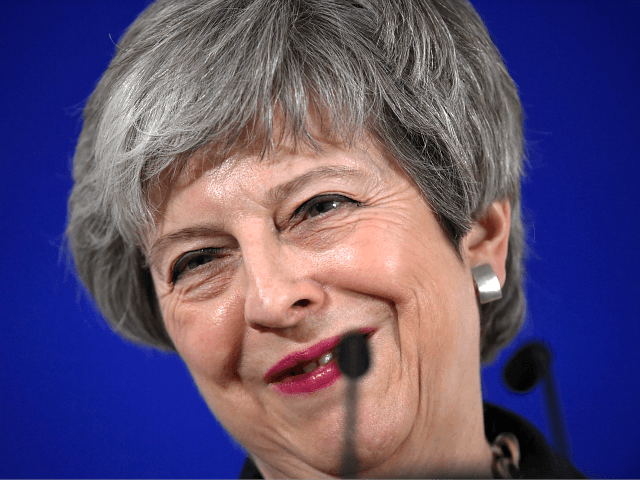Senior Tories are reported to have told Prime Minister Theresa May to set a departure date next week, after the party suffered its worst local election result since the government of John Major in 1995.
The loss of 1,334 seats and control of 44 councils across England follow Conservative activists warning that the government’s failure to deliver Brexit was going to play out in local elections, with many voters spoiling their ballots with pro-Brexit messages.
On Friday, a source from the influential Tory backbench 1922 Committee told The Times that should Prime Minister May refuse to set a date for her departure, the committee could decide to change party rules to allow another no-confidence vote this year.
Mrs May faced a no confidence vote by her own MPs in December, but survived, preserving her from another party challenge for a full 12 months, under current party rules.
After the prime minister twice delayed Brexit, ruled out the UK leaving the EU with no deal, and opted to open up negotiations on the future of Brexit with the Labour Party, Tory Brexiteers have been seeking new avenues to remove the prime minister.
UPDATE — Tories Lose More than 1,000 Seats https://t.co/clgTfehc8Z
— Breitbart London (@BreitbartLondon) May 3, 2019
However, a vote by officers of the 1922 Committee in late April failed to back the option of changing the rules to make it possible to call another confidence motion — which would have forced May to leave on June 12th, six months after the last confidence motion — over concerns party upheaval would “rock the boat” ahead of local elections on May 2nd, fears proved immaterial given the massive losses the party faced with May firmly at the helm.
Chairman of the 1922 Committee Sir Graham Brady was supposed to officially deliver the call for her departure date to May before the local elections, but both he and the prime minister decided to defer the demand until a later date. MP for Southend West Sir David Amess disagreed with that decision and called on the backbenchers to “take action.”
“I think it would have been much more sensible if, before the election, through the 1922 Committee there had been some precise date put on when Theresa would be departing, and then the election process can go ahead,” Sir David told The Times.
Watching the results roll in Thursday night, former Cabinet minister Priti Patel MP told the BBC that she had spoken with voters on the doorstep in the last three weeks of campaigning and they have “very categorically said she [May] is part of the problem.”
Theresa May First Tory Leader to Face Grassroots Confidence Vote in 185 Years https://t.co/Rue428QRPj
— Breitbart London (@BreitbartLondon) May 1, 2019
Ms Patel continued, “So I think where we’ve got to now look at these results, look at our direction of travel going forward as a party, I think obviously our party leadership — and our party nationally — need to look at the situation and make some very, very serious decisions now, in terms of where we go.”
“I think we need change,” she added. “I don’t think we can continue like this. I’ve been very clear any of my constituents have said this to me we need a change of leadership, perhaps the time has now come for that.”
Grassroots Tories have triggered an emergency meeting to hold a confidence vote in the party leader, but even if the 800 constituency chairmen and senior activists vote against her, the ruling is only advisory, and despite suggestions that such a vote may send a ‘message’ to the prime minister, Mrs May remains adamant that she will stay in office until Brexit is delivered.

COMMENTS
Please let us know if you're having issues with commenting.